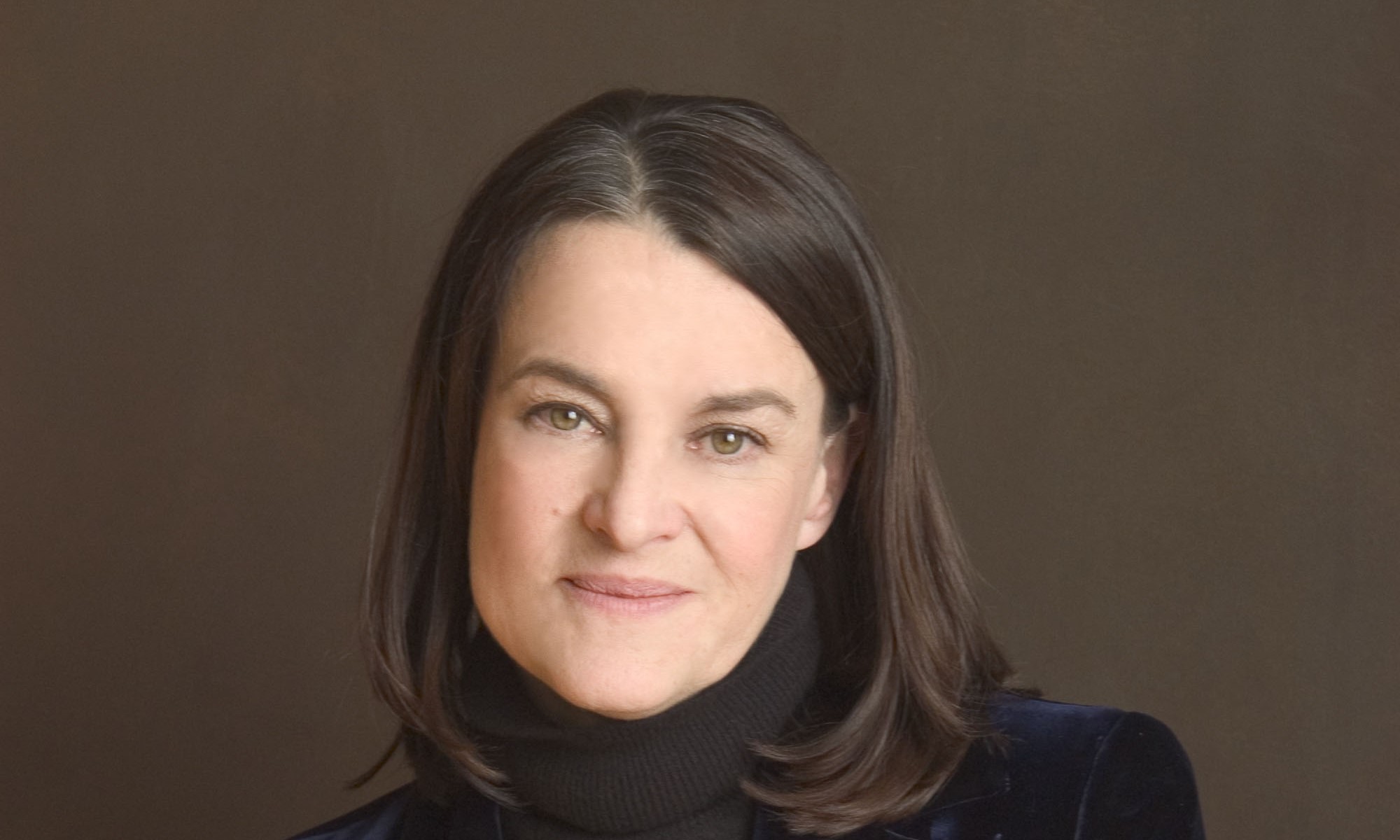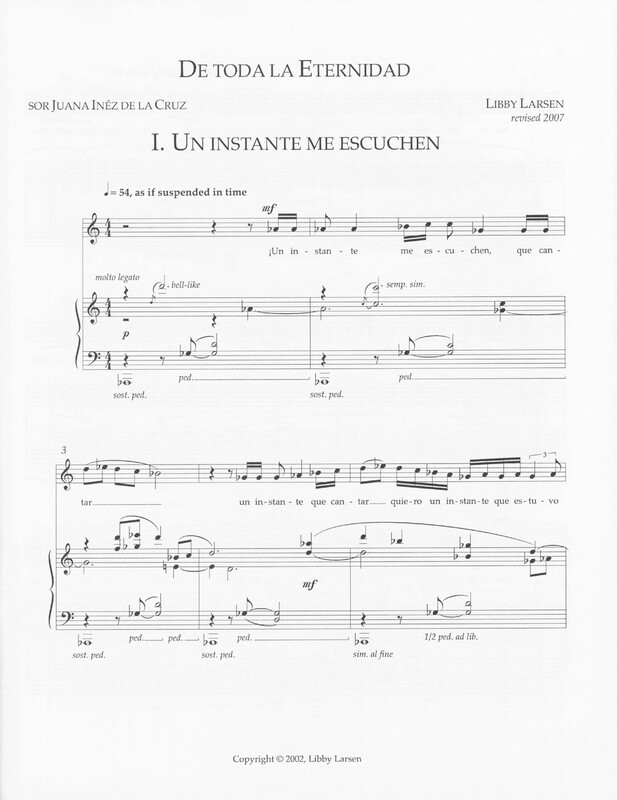De toda la eternidad
Item
-
Score title
-
De toda la eternidad
-
Composer
-
Libby Larsen
-
Program note
-
When Bonnie Pomfret asked me to compose a song cycle on texts of Sor Juana Inéz de la Cruz, I was honored and delighted. I have long admired her work and have found her poetry to be achingly beautiful, deeply mystical, and puzzlingly enigmatic. She speaks deeply of sensual love and devotion defined by love and despair. But it is up to the reader to attach concrete images to her poetic objects. One asks the questions: Is she directing her words to the mortal or immortal? Do her choices of feminine and masculine nouns have meaning beyond the mystical contemplation of a unified supreme being? Are her “genderizations” specific or is she addressing the Unity through the pronoun system of Spanish? In the end, these questions do not matter. What matters is the poetry itself. This is where I began my work in organizing five of her poems into this song cycle entitled De toda la eternidad.
This is a cycle sung by a lover caught in an agonizing suspension of time -- a time in which the lover perceives everything from beginning to end, even before the affair begins. It’s in this moment, hung in eternity, where Sor Juana de la Cruz tells us we feel emotional urgency precisely because there is no progression of time. In her genius, de la Cruz presents us with an oxymoron: the moment suspended in eternity. The entire cycle takes place entirely in that moment and solely in the mind of the lover. The first song flows with only a hint of pulse. Time runs anxiously ahead of itself in the second song, while in Tersja frente, time is completely suspended, languorous, and sensual. The fourth song, Esta tarde, is the most metric of the five songs. It is the human touch point of the cycle and the text is perhaps easiest to understand if one attaches it to a human situation. I chose to set the text in a vague, dark tango as a metaphor for the relationship of the lover to the beloved. Diuturna enfermedad de al esperanza presented me with another example of the genius of great poetry. It's the word “diuturna.” I was dissatisfied with my original translation of this word and so I went on a hunt to find another definition or meaning. I found that the word suggests an eternally long span of time -- that the word itself is a state of being which feels like eternity but is not. A perfect word, perfect in itself, and perfect in the poem.
— Libby Larsen, December 18, 2002
 Libby Larsen
Libby Larsen

